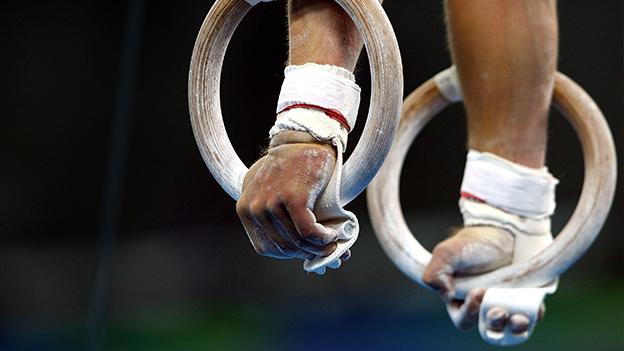International Gymnastics Federation brings in new code of conduct
- Published

The International Gymnastics Federation has introduced a new code of conduct to promote "a positive culture based on fundamental principles of integrity, respect, honesty and fairness".
The announcement follows several years of controversy for the sport.
In 2018, USA Gymnastics team doctor Larry Nassar was jailed after abusing at least 265 women.
An investigation into allegations of mistreatment at British Gymnastics is also ongoing., external
Meanwhile, a group of gymnasts called for an independent investigation into Canadian gymnastics in March.
"We cannot change years of bad practice in the sport overnight," said International Gymnastics Federation (FIG) president Morinari Watanabe.
"While in some parts of the world, new generations of practitioners, coaches and executives developed approaches based on respect and wellbeing, abusive training methods still prevail in some places, with the strong conviction that it is part of the path to success.
"That cannot prevent us as the governing body from setting up standards applicable everywhere, and by so doing, reminding everyone that they have rights, duties and responsibilities."
The new code, which will be effective immediately, requires coaches to "refrain from any inappropriate, insensitive, hurtful, mocking or critical comments or behaviour regarding the athlete's physical appearance, body shape or weight".
"This new version of the code outlines the standards of behaviour expected of all those involved in gymnastics, and helps to draw a clear line between what is considered good practice and what is not tolerable," said the FIG.
"The code lists general principles of integrity and respect to which everybody who takes part in gymnastics must commit, and also specific principles for athletes, coaches, judges, officials and the managers of gymnastics federations.
"Its scope of application has also been broadened compared with the previous code, to encompass all aspects of training, competition, sporting operations and communication."

Could an afternoon nap boost your health?: Dr Michael Mosley investigates the benefits of a shut-eye
What's behind the football's recent pitch invasions?: The Sports Desk looks at the potential causes and its problems
